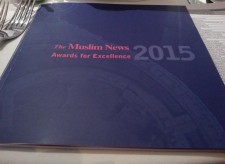The issue of what amounts to a constructive unfair dismissal is one that often causes confusion. In simple terms, constructive unfair dismissal is when an employee resigns in response to a fundamental breach of contract by their employer. It might be one act that itself is fundamental, or it might be an accumulation of acts that culminate in ‘the last straw’, leading the employee to resign.
Each of those accumulated acts by themselves may not be fundamental, but their cumulative effect must demonstrate a fundamental breach. An employee must resign in response to the breach or breaches—that means that they cannot delay their resignation until a later, perhaps more convenient, time. If they do, they may be taken to have ‘affirmed’ the breach—that is, to have been aware of it, and by not doing anything, taken to have accepted it.
What constitutes a ‘fundamental’ breach will very much depend on the circumstances of each case; it is one of the reasons why such claims are not always easy to predict.
Clearly, there are some obvious examples—a reduction in pay, or a significant reduction in duties/demotion of position, for example. But subjecting an employee to discrimination or failure to take appropriate action to deal with complaints or grievances can also amount to a fundamental breach.
The issue was revisited in the recent case of Singh v Metroline West Ltd [2022] EAT 80. Mr Singh was a bus driver. He was invited to a disciplinary hearing due to instances of lateness.
Mr Singh began a period of sick leave due to stress prior to the hearing and did not attend. He subsequently attended a sickness review meeting, where he was advised that a decision had been made not to pay him company sick pay, as he was not allowing the company to address his concerns.
This led to Mr Singh complaining of elevated stress levels from the financial worries caused by not receiving company sick pay. However, his complaint in this regard was dismissed. Mr Singh was so disheartened with the decision not to pay him company sick pay in circumstances where he was signed off work by his GP, that he then resigned.
Mr Singh brought a claim to the employment tribunal for constructive unfair dismissal. The terms and conditions of his employment stated that the employer reserved the right to stop paying company sick pay where a ‘thorough investigation’ had revealed that the employee’s absence was not genuine.
There had clearly not been any investigation into whether Mr Singh’s absence was genuine. He had also complied in full with the reporting requirements to be eligible to receive company sick pay.
The tribunal concluded that there was a breach of Mr Singh’s contract in refusing to pay him company sick pay. However, they found that this breach was not ‘fundamental’ when the aim was to require Mr Singh to attend a disciplinary hearing rather than an intention not to be bound by the terms of the contract.
Mr Singh appealed to the Employment Appeal Tribunal. They found that the employment tribunal had not correctly analysed the situation. It did not matter that the employer had not shown an intention not to be bound by the contract. What was required was the demonstration of an intention not to be bound by the terms of the contract. That was so serious that it went to the heart of the agreement itself. Where there was a process to follow if the employer thought that the sickness was not genuine, which had not been utilised, a failure to pay the company sick pay did amount to a fundamental breach of contract.
This case demonstrates how a simple legal test can sometimes be misunderstood when applied to complex facts. It also shows that the intention behind an act is not a determinative factor. What is important is the effect – and the extent to which the action goes to the root of the employment relationship.
Safia Tharoo
Barrister, 40 Bedford Row, London

















